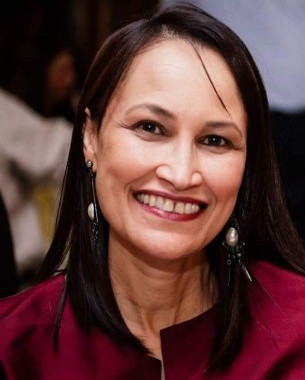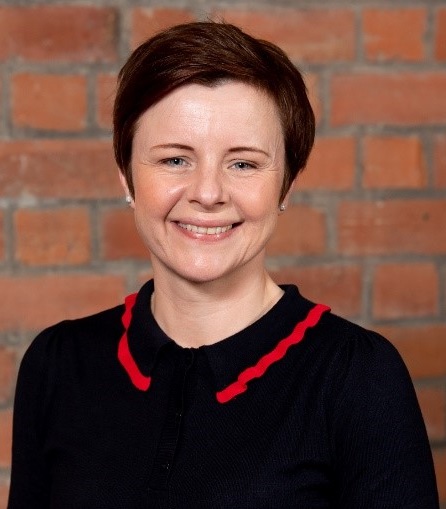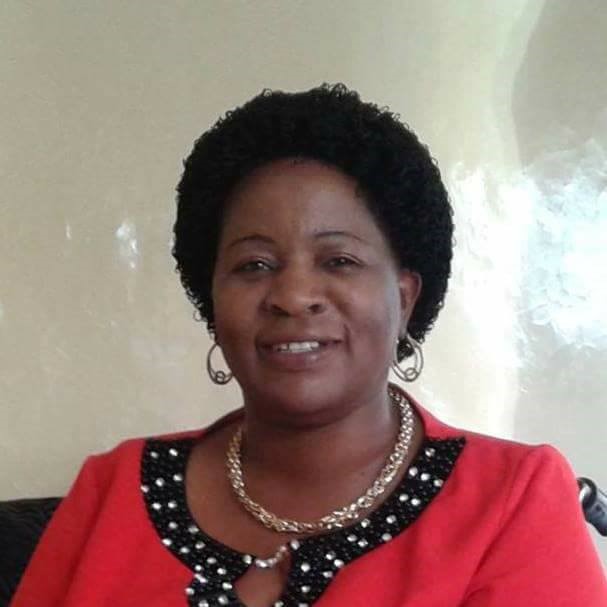 Jeanette R Hunter
Jeanette R Hunter
Reflections on the implementation of the Ideal Clinic Initiative in South Africa
Jeanette R Hunter (BA Cur-UNISA, Post Graduate Diploma in Health Services Management – University of Cape Town, Masters Degree in Business Administration - Free State University) has worked in senior management positions in and outside of the public sector for the past 17 years. She is currently the Deputy Director General Primary Health Care at the Department of Health of South Africa. Jeanette came into this post from the position of Chief Executive Officer of the Health Systems Trust. Jeanette has a solid track record of achievement through a thorough understanding and successful application of strategic and operational planning processes, change management, project management, continuous quality improvement and human dimensions management strategies. As the HST CEO she lead the design and implementation of key organisational reforms.
Key achievements at NDoH to date are the approval by the National Health Council of key policies and strategic implementation frameworks in the areas of the district health system, primary health care, health promotion and non-communicable diseases, leading the piloting of health professional contracting and leading the government of South Africa's Operation Phakisa Ideal Clinic programme.
Jeanette has been the Administrator of the North West Department of Health since May 2018, where she spearheads key health systems strengthening reforms.
 Philippe Vandekerckhove
Philippe Vandekerckhove
Evidence-Based Practise in the Aid Sector
Prehospital care is an underutilized part of healthcare systems worldwide: 400 million people have no access to primary care, and tens of thousands of people die every day needlessly for want of simple, low-cost interventions. One of the reasons prehospital care (including humanitarian aid) is underutilized is the lack of reliable scientific guidelines. The lack thereof has to do with two main elements: the type of topics addressed and the lack of funding available. Several initiatives and organizations – e.g. the Belgian Red Cross Science Foundation – now try to address this.
Philippe Vandekerckhove is associate Professor at the Faculty of Medicine of the University of Leuven (Belgium) and Professor Extraordinary at Stellenbosch University. He holds non-executive positions as honorary president of the European Blood Alliance and president of GAP (Global Advisory Panel (GAP) on Corporate Governance and Risk Management of Blood Services in Red Cross and Red Crescent Societies). Prior to this position Philippe worked as Clinical Director of the University Hospital Leuven from where he also obtained his M.D./PhD and Pathology degree. His clinical and pathology training was further carried out in South Africa (Baragwanath - University of Johannesburg, and Groote Schuur Hospital - University of Cape Town), the US (Woods Hole Marine Biology Laboratory, University of Hawaii, New York University), and The Netherlands (Erasmus University, Rotterdam). In addition, Philippe studied healthcare management at INSEAD (France) and general management at Harvard Business School. He has published about 100 articles in peer-reviewed journals, and 8 chapters in textbooks, mainly in the field of immunology, hematology, blood banking and evidence-based medicine.
 Dr Áine Aventin
Dr Áine Aventin
Using Intervention Mapping to Promote Gender Equality in Sexual and Reproductive Health among Adolescent Men in South Africa and Lesotho
To expedite impact and reduce costs, existing evidence-based interventions to address global health challenges are increasingly being implemented with new populations and in new contexts. Yet the processes used to optimise adaptation of these interventions for new settings are rarely reported. Reflecting on a project being conducted in collaboration with colleagues at the Institute for Life Course Health Research at Stellenbosch University, Dr Aventin will outline an approach to co-producing adapted versions of an existing UK sexual and reproductive health intervention for local use. She will reflect on how Intervention Mapping was used to adapt an intervention that promotes social justice and gender equality, and offer considerations for global health researchers involved in similar work.
Dr Áine Aventin is Vice-Chancellor's Fellow at the School of Nursing and Midwifery and Centre for Evidence and Social Innovation, Queen's University Belfast, Northern Ireland. A social psychologist and social research methodologist, she specialises in the application of mixed methods research to optimise the development, evaluation and implementation of complex behavioural interventions in health and educational settings. Her research focuses on sexual and reproductive health, in particular, the impact of gendered norms on health and men's role in enabling maternal health. In 2018, Áine was awarded a prestigious Vice-Chancellor's Fellowship at Queen's University Belfast. She is currently involved in research involving the development and evaluation of gender transformative interventions in low- and middle-income countries.
 Rachel Kamchacha Kachaje, Malawi
Rachel Kamchacha Kachaje, Malawi
The Use Of Partnerships, A Driver And Facilitator Of Disability Research In Africa
Ms Rachel Kamchacha Kachaje a disability activist and previous minister for disability and the elderly from Malawi will share her experience on how she has used partnerships and collaboration to achieve success with various organisations and stakeholders on her advocacy role for persons with disabilities. Kamchacha claims that important documents such as the UN Standard Rules for Equilization of Opportunities for Persons with Disabilities, the UNCRPD and the SDGs used partnerships to ensure success. She presents partnerships as a strategic alliance built on trust, equality and mutual understanding and obligations to achieve a common purpose. For persons with disabilities interactions with trusted partners enable them to fully express their true concerns about the society we live in. It is during these interactions terms such as “Nothing about us without us" and “Leaving no one behind" are expressed.
Kachaje will further expand on disability research and partnerships, highlighting the historically and traditionally approaches to disability research which previously was based on and aimed at finding ways of preventing and rehabilitating disability. The current questions often asked of professionals are: "How do we know if current professional scope of practices are effective in bringing about the desired outcomes and change?" “How must society change to ensure that to have a disability does not mean exclusion and discrimination?" She will end her paper by specifying the role of each stakeholder in advancing true partnerships in disability research.
CUGH Webinar: The Impact of COVID-19 in Africa & Latin America: Challenges & Opportunities
Link

